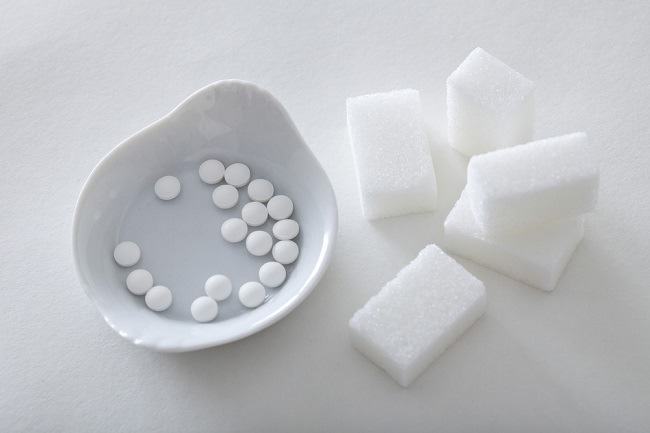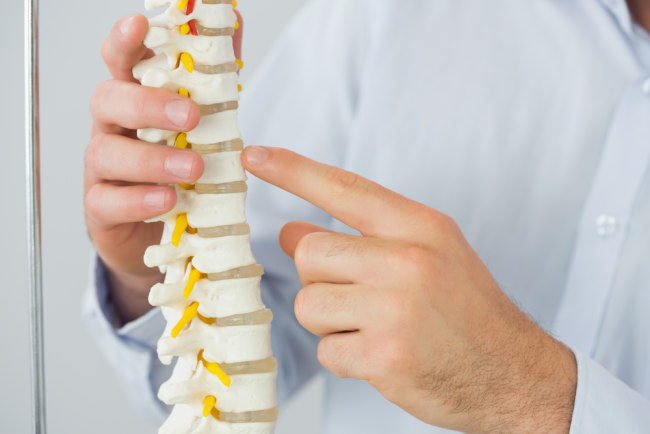Although more often experienced by the elderly, who would have thought that Alzheimer's can also occur at a young age. The emergence of Alzheimer's at a young age should not be underestimated because it can worsen the quality of life of the sufferer, both in social and work relationships.
Alzheimer's is a progressive brain disorder that causes memory loss, thinking skills, and behavioral changes. Alzheimer's is usually more common in people over the age of 65. However, Alzheimer's can also occur in people aged 40-60 years, some are even 30 years old.

Causes and Risk Factors of Alzheimer's at a Young Age
The exact cause of Alzheimer's at a young age is not known for certain. However, some medical experts suspect this condition is caused by a buildup of a protein called amyloid in the brain. This condition can affect the way of thinking and then lead to Alzheimer's.
Some factors that can increase the risk of developing Alzheimer's at a young age are:
1. Genetics
People who develop Alzheimer's at a young age usually also have parents with Alzheimer's. This is because genetic mutations from parents with Alzheimer's can be passed on to their offspring.
2. Down syndrome
People who suffer from down syndrome (trisomy 21) are also at risk of developing Alzheimer's at a young age. This is related to a gene on chromosome 21 which is also involved in the production of amyloid beta protein in the brain.
3. Mild cognitive impairment
Mild cognitive impairment is a decrease in memory and thinking skills when compared to the cognitive abilities of their peers. However, this disorder will not interfere with a person's function in social life or work.
People who suffer from mild cognitive impairment will have a high risk of developing Alzheimer's which leads to dementia.
4. Lifestyle
Lifestyle and conditions that are at high risk of causing heart disease, such as obesity, high blood pressure, high cholesterol, and uncontrolled type 2 diabetes, have been shown to put a person at a higher risk for developing Alzheimer's. Therefore, changing lifestyles, for example by eating a healthy diet and exercising regularly, can also reduce the risk of developing Alzheimer's.
Recognizing the Signs of Alzheimer's at a Young Age
Then, how do you know you have Alzheimer's disease early? The initial symptoms that usually appear are confusion and decreased ability to remember.
Here are some signs of Alzheimer's at a young age:
1. Memory loss
People with early-stage Alzheimer's will forget more often. Chances are he can't remember important schedules or dates you've never forgotten before. This memory loss will interfere with daily activities.
2. It's hard to find the right words
Signs of Alzheimer's at a young age can also be seen from the way someone talks. People with Alzheimer's can have a hard time finding the right words when speaking normally.
3. Difficult to remember time and place, and difficult to make decisions
People with Alzheimer's at a young age may also have difficulty remembering places. He will be confused and feel not understand the reason for being in that place.
4. Difficulty doing work or routine tasks
People with Alzheimer's may also find it difficult to do their usual daily activities. For example, he will find it difficult to use a car, whereas previously he used a car every day.
5. Experiencing mood swings
Mood changes that occur in young Alzheimer's sufferers can include fear, anxiety, confusion, and even depression. These mood swings can be extreme and may change a person's behavior.
Dealing with Alzheimer's that Appears at a Young Age
Experiencing Alzheimer's at a young age can be challenging, especially if the sufferer is still of a productive age. If you experience symptoms of Alzheimer's at a young age, you need to consult a doctor for proper treatment.
Your doctor may prescribe medications, such as:
- donepezil
- Rivastigmine
- Galantamine
- Memantine
The goals of this treatment are to help you maintain mental function, control behavior, and slow the progression of Alzheimer's disease.
After taking treatment, there are some important things you need to do in addressing Alzheimer's at a young age, including:
- Find out about the possibility of moving to a job position that is more suited to your limitations.
- Consider reducing your workload or reducing your hours if you feel that the work is already too heavy.
- Talk about your condition with your partner. Don't hesitate to ask for help if needed.
- Keep doing various activities with your partner, according to your ability. Find and enjoy new activities with your partner to keep you energized.
- Also talk to your child about Alzheimer's condition so that he understands the condition of his parents.
- Keep doing activities with children and family.
Although Alzheimer's cannot be completely prevented, at least there are some steps that can reduce the risk of Alzheimer's at a young age, such as regular exercise, eating healthy foods, managing high blood pressure, diabetes and high cholesterol well, and quitting smoking.
Alzheimer's at a young age is possible. If you start experiencing signs of this disease, immediately consult a doctor to confirm your condition. If treated quickly, Alzheimer's can be prevented from developing further.









